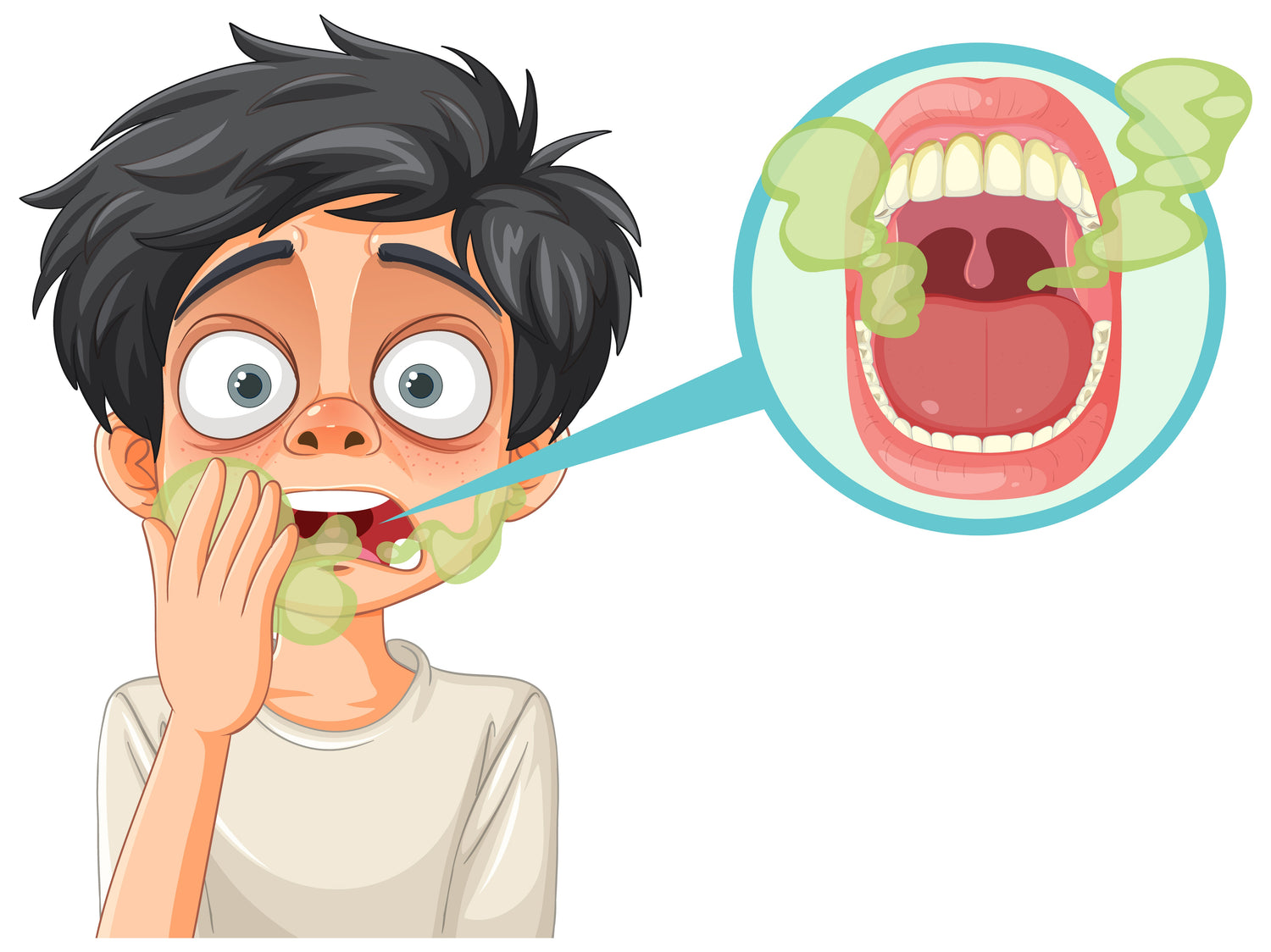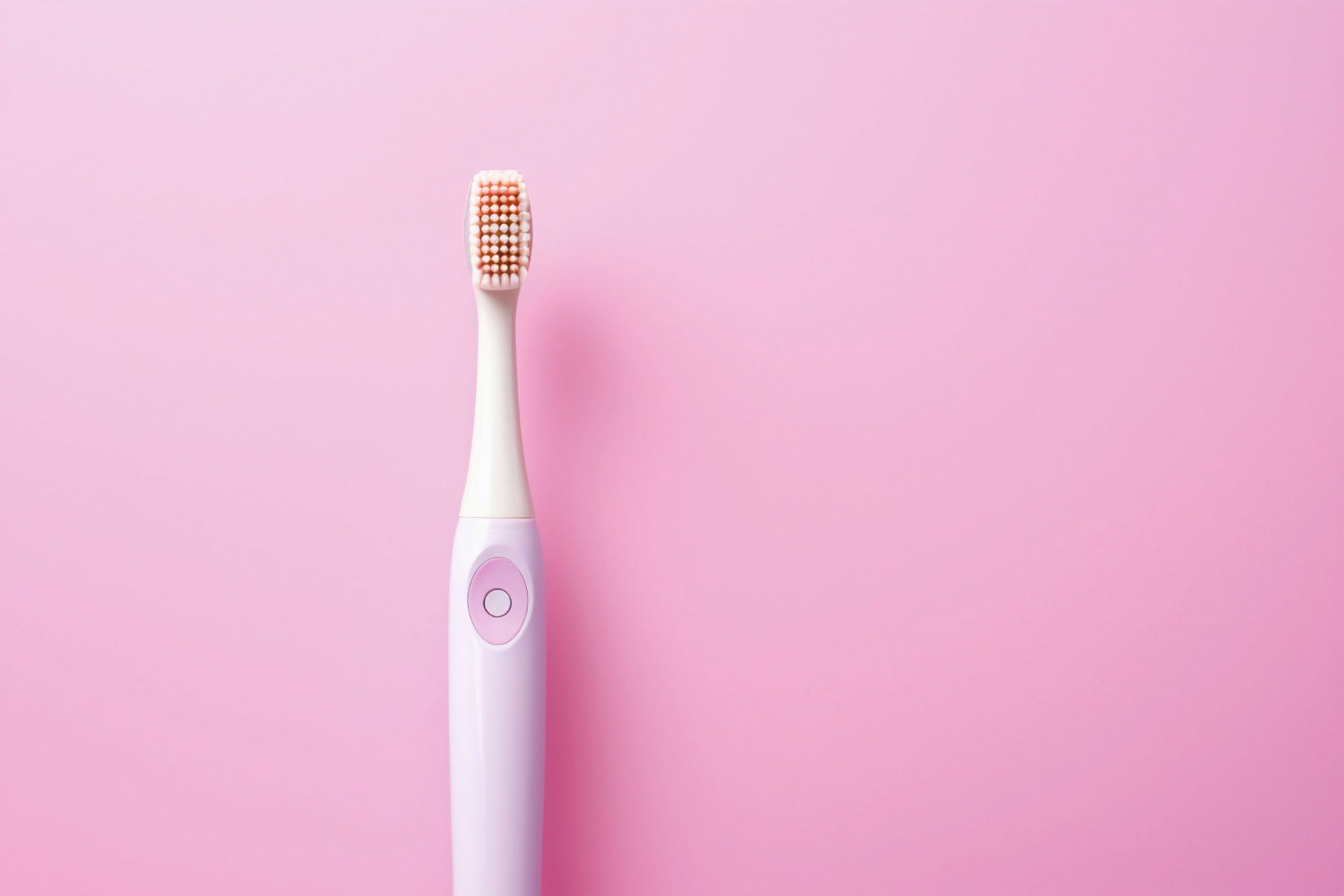Bad breath is a sensitive topic - no one likes to talk about it. Many make a taboo subject out of it, enduring bad breath even among close family or friends because they don't dare address the person in question.
Tactful, open words would be helpful, however, because usually only others can smell the bad breath.
People who learn that they have bad breath usually find it very unpleasant. This is understandable, but the good news is that bad breath can be effectively controlled.
In most cases, the reason for bad breath is in the mouth. The foul odor can be caused by poor oral hygiene or dental problems such as caries, as well as inflammation in the area of the oral cavity. In addition, however, simply a too dry mouth, i.e. a reduced salivary flow, can also be responsible for bad breath. Some foods and stimulants, such as garlic, onions, coffee, alcohol or nicotine, affect saliva. Some people react to this more strongly than others and smell out of their mouths after eating them. Often, just chewing gum after a meal helps to stimulate saliva production.
Good oral hygiene: the be-all and end-all for bad breath
In principle, you should pay attention to careful oral hygiene in case of bad breath:
Brush your teeth twice a day for at least three minutes with a manual toothbrush, or follow the specified times for electric toothbrushes.
Change the toothbrush at the latest when the bristles stick out. With demirdental brush heads, the indicator brushes show you when it is time to change.
Clean the interdental spaces to prevent inflammation. Use dental floss or interdental brushes for this purpose.
Use tongue scrapers or tongue brushes to clean the tongue, especially the back area, because a lot of bacteria accumulate there.
Clean braces or dentures at least once a day as directed.
These home remedies help with bad breath
In addition, there are some home remedies that help freshen breath:
Apple or apple cider vinegar.
Apple contains secondary plant compounds that have antibacterial effects and can prevent bad breath. Instead of eating an apple, you can also add a tablespoon of apple cider vinegar to a glass of lukewarm water and rinse with it.
Baking soda
Rinses with baking soda (1/2 teaspoon to a glass of water) can remove plaque on the tongue and neutralize the pH in the mouth.
Coffee beans or fresh herbs
Chew some coffee beans or fresh herbs, such as parsley, fresh mint, dill, cloves, chamomile or fennel seeds, after a meal. Herbs contain chlorophyll as well as essential oils, which can bind odors.
Oil pulling
Oil pulling is a well-known detox method that can also help with bad breath. The oil is supposed to bind and remove the malodorous substances as well as the toxins. For oil pulling, it is best to use cold-pressed sesame, olive, coconut or sunflower oil. After brushing your teeth, put one to two tablespoons of oil in your mouth and swish it around for five to ten minutes. Then spit out the oil and rinse with warm water.
It's rare, but serious illnesses can be behind bad breath. If good oral hygiene and proven home remedies do not help, it makes sense to seek professional advice. A doctor can determine the cause more precisely by analyzing the gas in the air you breathe and recommend suitable measures.




Leave a comment
All comments are moderated before being published.
This site is protected by hCaptcha and the hCaptcha Privacy Policy and Terms of Service apply.